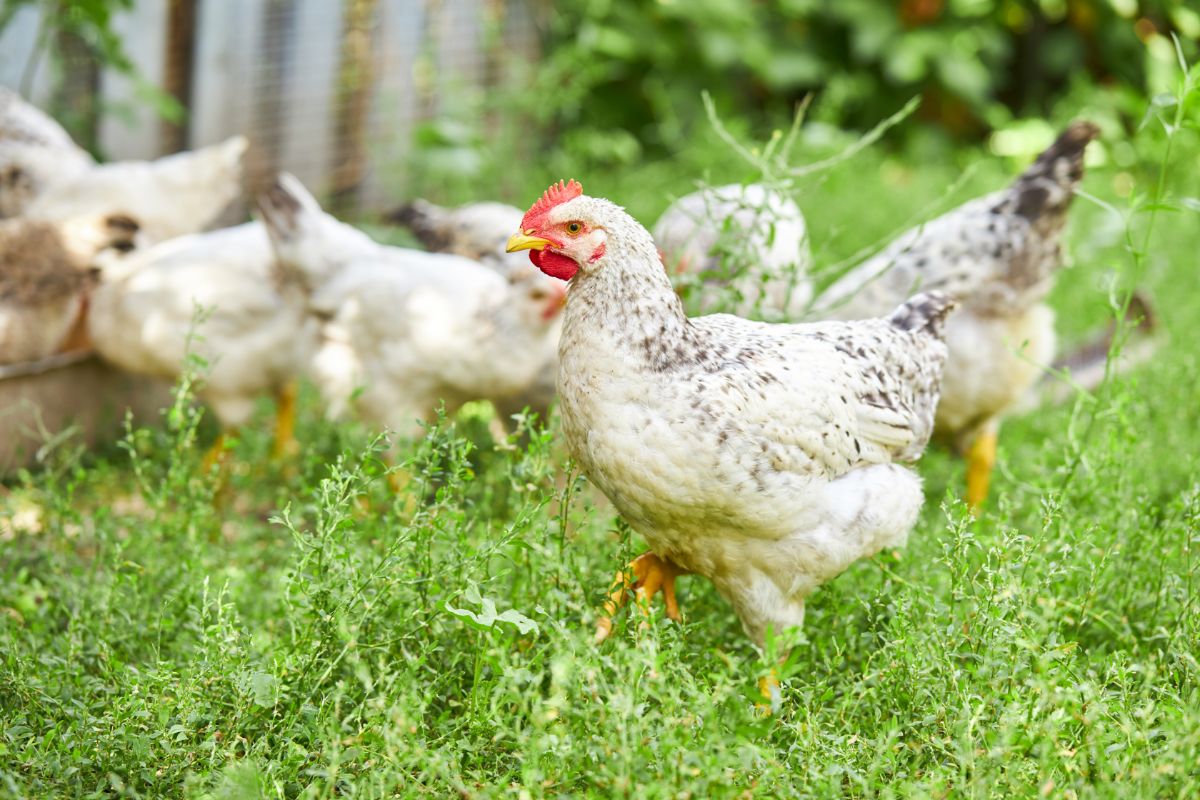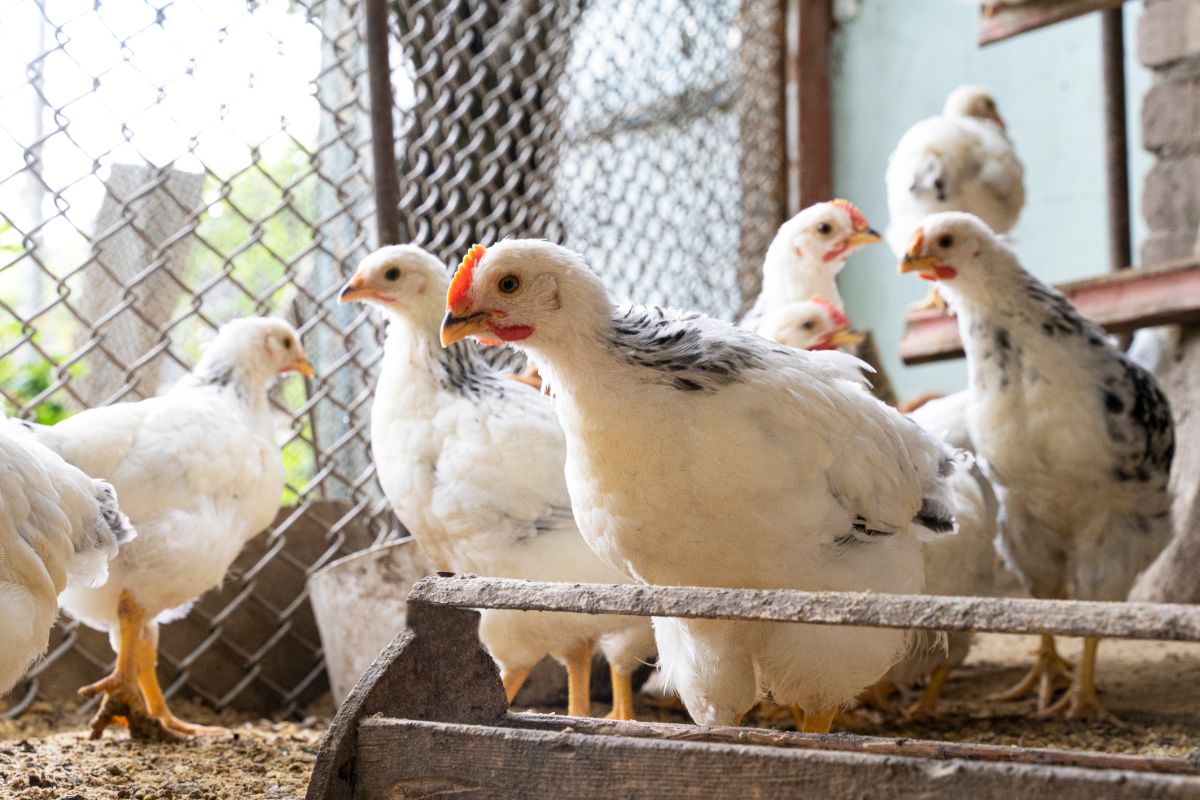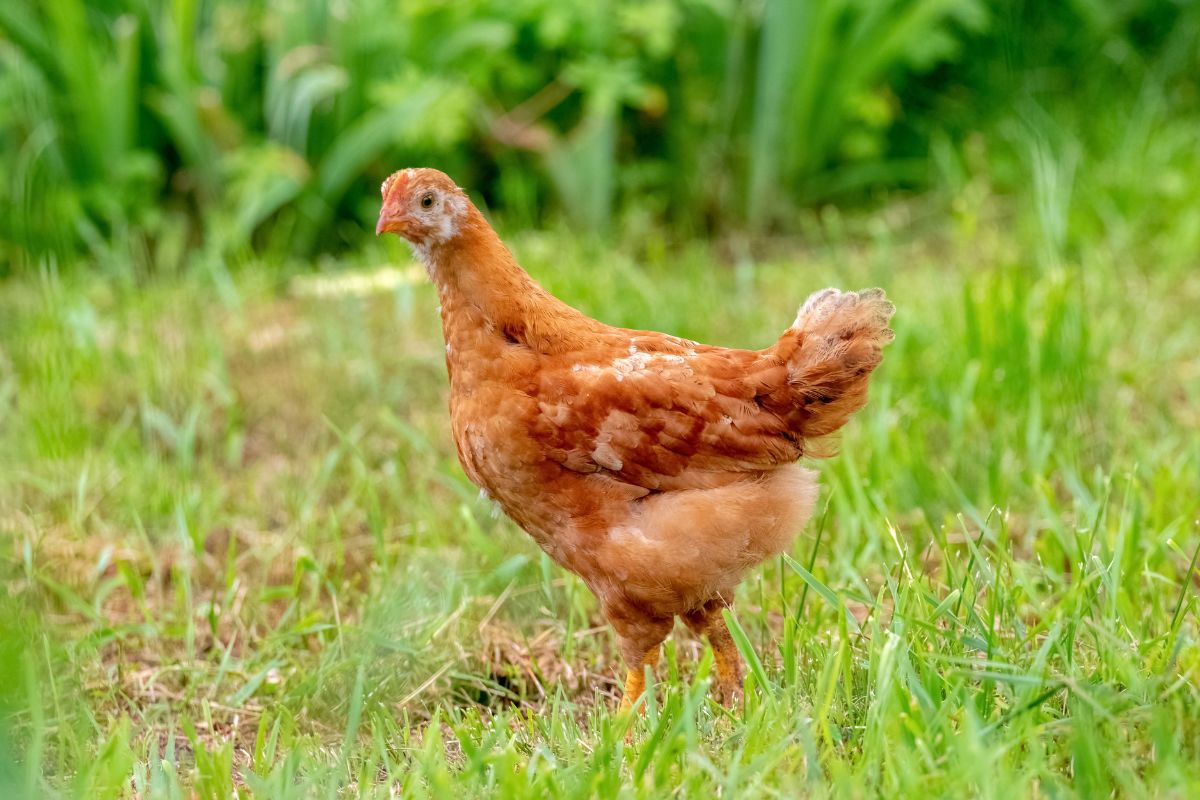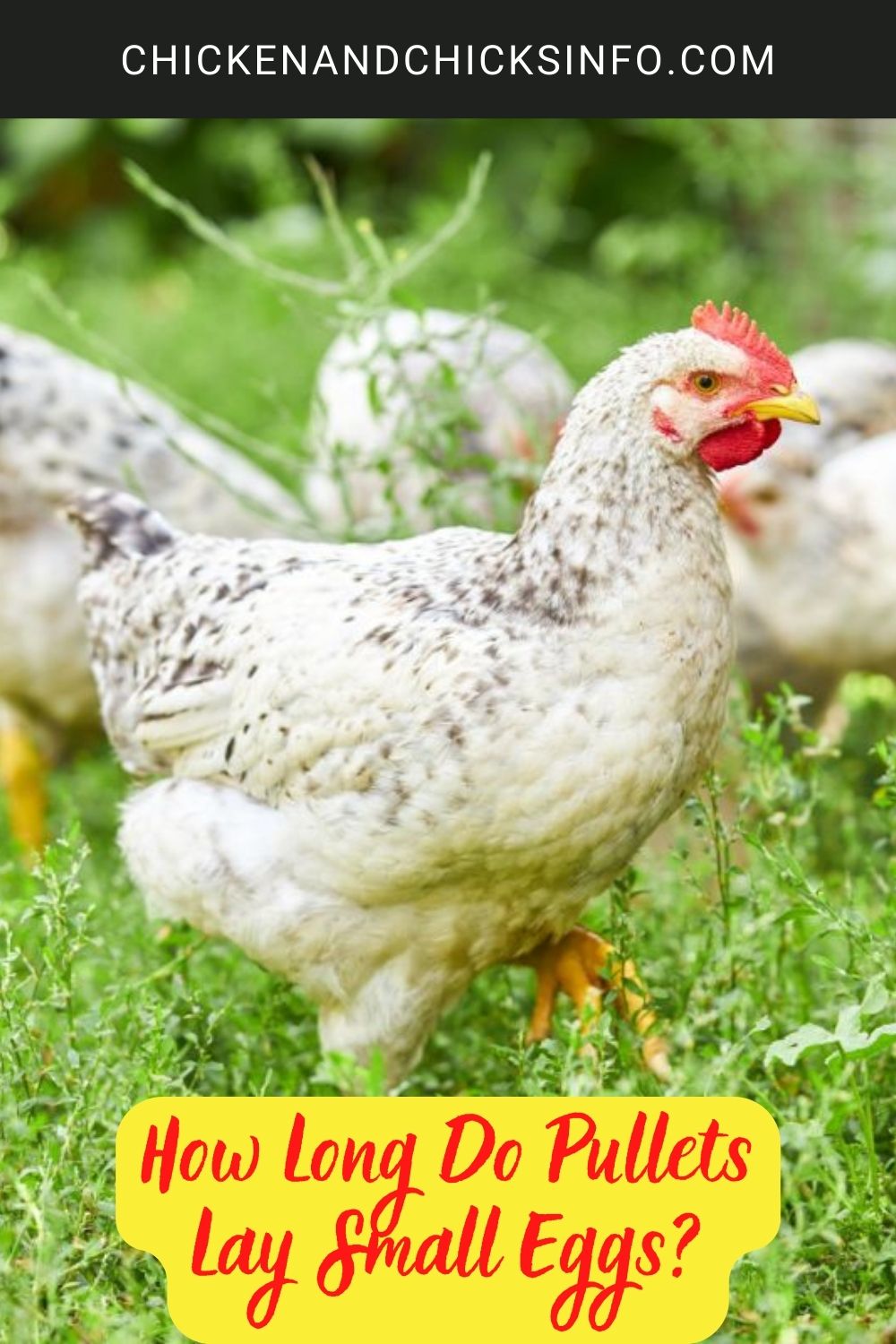
If you have a young hen, known as a pullet, it’s an exciting and interesting period witnessing them lay their first eggs.
As you’d expect, pullet eggs are smaller than the eggs mature hens lay. Don’t worry, it’s perfectly normal to wonder; how long do pullets lay small eggs and when will you start getting large eggs?
I can help answer these questions and more for you...
Jump to:
What Is Considered a Pullet?
If you keep seeing the term “pullet” but aren’t sure exactly what a pullet is and what this means - I can help clarify this for you.
A “Pullet” is a hen that is no older than 1 year of age, and more importantly, has not started laying eggs yet.
Looking at a pullet, they look the same as older chickens that are laying eggs. They have nice fluffy coats of feathers and move and look like older hens. The main difference is that they can’t lay eggs yet. Although, it probably won’t be long before they do.
When a chicken is close to or just started lay eggs, they are referred to as “point of lay” hens.
So, there is a difference between pullets and point of lay hens. Although I often hear questions around when pullets will lay eggs, how long they will be small, etc.
When Do Pullets Start Laying?

If you’re wondering when your pullet will start laying, it’s hard to pinpoint exactly when this will happen.
Generally speaking, most hens will lay their first egg between 18-24 weeks of age.
But this is dependant on a number of factors. Most notably the breed of chicken makes a big difference in when you can expect them to start laying.
There are also some environmental, health, and wellness factors that will influence when and how often hens start to lay, too.
The golden rule is - a happy and healthy chicken will lay to their full potential.
This means providing good nutrition, plenty of quality daylight, spacious and clean living conditions, and so on.
Can You Eat the First Eggs That a Hen (Pullet) Lays?
Absolutely! It’s quite the honor to be able to eat the very first egg a hen lays.
I know some people who swear that pullet eggs taste better than fully matured hen eggs. In fact, this article goes into some detail about how they’re in demand in some areas due to how delicious they are.
They have brighter yolks are taste a lot “richer” than regular eggs. They also hold together better, which means they are perfect for frying and poaching.
Are you starting to water at the mouth yet? If you enjoy eggs, which I bet you do, I recommend going out of your way to try pullet eggs.
Useful content - 5 factors that affect how big chicken's eggs are.
How Often Do Pullets Lay Eggs?

Again, the answer to this can vary depending on the breed. But typically, once a pullet has laid that first egg, there’s a good chance you will see one almost daily.
Don’t expect large regular eggs for a while, though. When pullets start laying they produce small eggs that will vary in size for a while.
In my experience, with the right living conditions, you can expect 5-7 eggs a week for the first few weeks.
How Long Do Pullets Lay Small Eggs For?
It’s fun and exciting seeing a pullet lay their first egg. Honestly, there are few things about keeping backyard chickens more exciting than a first egg.
That excitement soon wears off though, and you start wondering when your chook is going to start laying large eggs.
In my experience, it takes at least 30 weeks before a pullet stops laying small or varying size eggs and produces a full-size egg. I’ve read some articles that claim it’s at least 40 weeks, but I’m certain I’ve seen them a little before the 40-week mark.
Again, there are some environmental factors to consider. It also depends on the breed of your chicken, and what exactly you consider to be the largest egg they’ll lay.
In Summary
Pullets aren’t pullets for long, and they don’t lay small eggs for long either. You can typically expect a pullet to start laying eggs around 18 weeks of age onwards. Then you’ll be finding large eggs in their nesting boxes at around 30 weeks onwards.
If you have a pullet laying, enjoy those small eggs - they’re quite the delicacy. Keeping and raising chickens is a fun and rewarding experience, I hope you enjoy it as much as I do.
Related content - Chickens need good nutrition, read the benefits for chickens eating radishes, parsley, and other herbs.





